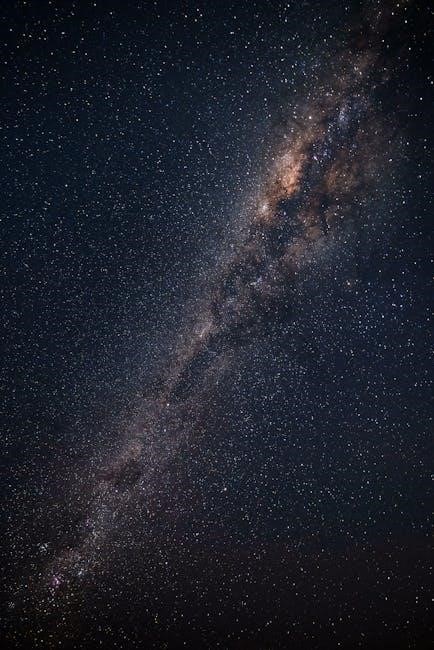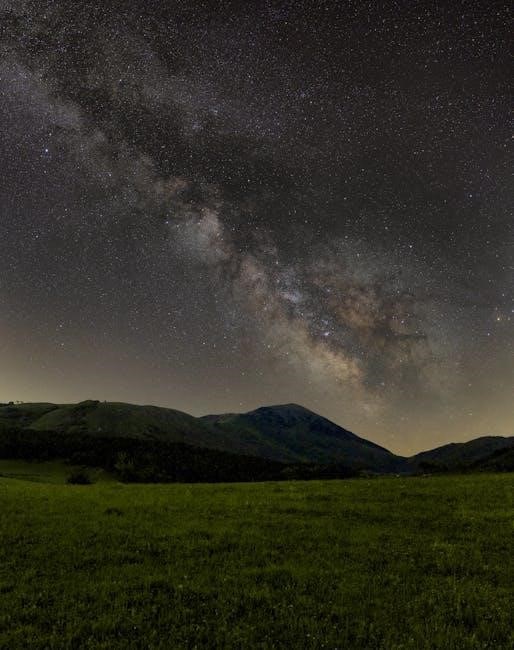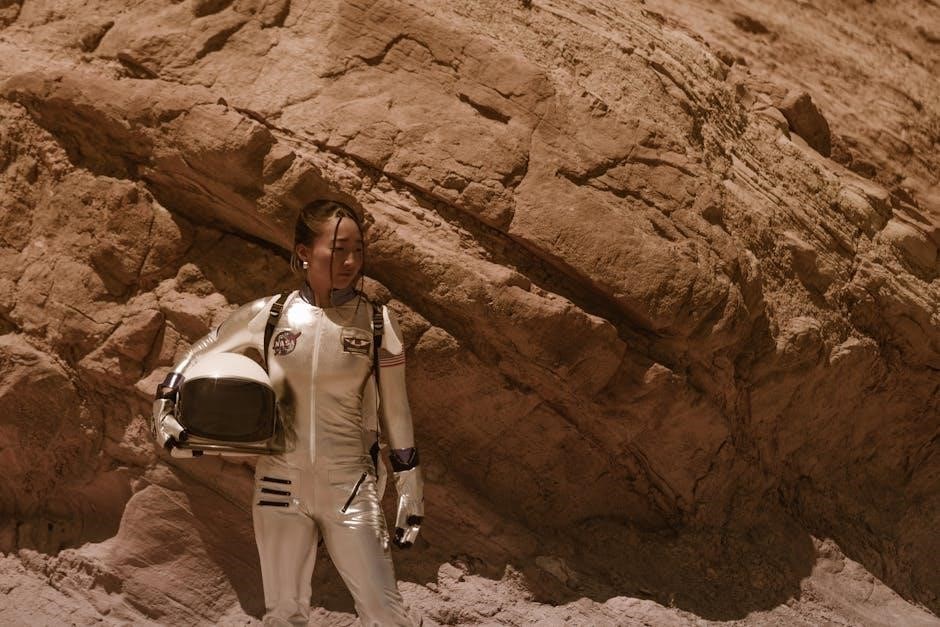
dante and aristotle discover the secrets of the universe pdf
Dante Alighieri and Aristotle’s works explore the universe through poetic and philosophical lenses‚ blending spirituality with scientific inquiry. Their contributions shaped medieval and Renaissance thought‚ offering profound insights into cosmic structure and human existence. This introduction delves into their unique approaches to understanding the cosmos‚ highlighting their enduring influence on literature‚ philosophy‚ and science.
The Historical Context of Their Works
Dante Alighieri and Aristotle‚ though separated by centuries‚ shaped their works within distinct historical frameworks. Dante‚ a 14th-century Italian poet‚ crafted The Divine Comedy amidst the cultural and religious upheaval of the late Middle Ages. His masterpiece reflects the theological and philosophical debates of the time‚ blending Christian doctrine with classical influences. Aristotle‚ a 4th-century BCE Greek philosopher‚ laid the foundation for Western philosophy and science during a period of intellectual flourishing in ancient Greece; His works‚ later rediscovered in the medieval era‚ profoundly influenced Scholastic thought. Both figures wrote in eras marked by significant shifts in knowledge and belief‚ with Dante drawing on Aristotelian ideas to explore the cosmos and human nature in a spiritually charged universe.
Key Themes and Philosophical Contributions
Dante and Aristotle explored profound themes that shaped their philosophical contributions. Dante’s Divine Comedy delves into divine love‚ moral philosophy‚ and the structure of the universe‚ blending theology with classical ideas. Aristotle‚ through his works‚ established foundational concepts in metaphysics‚ ethics‚ and natural philosophy‚ emphasizing reason and empirical observation. Both thinkers emphasized the pursuit of knowledge and the interconnectedness of human and cosmic realms. Dante’s vision of a hierarchically ordered universe reflects Aristotelian influences‚ while Aristotle’s ideas on causality and the teleological nature of reality provided a framework for understanding existence. Their works continue to inspire philosophical inquiry into the nature of being‚ morality‚ and the cosmos‚ bridging the gap between spiritual and scientific understanding. Their contributions remain central to discussions on ethics‚ metaphysics‚ and the human condition.

Dante’s Divine Comedy and Cosmological Insights
Dante’s Divine Comedy presents a structured‚ symbolic vision of the universe‚ reflecting medieval cosmology and spiritual dimensions. The poem’s layered realms mirror Aristotle’s hierarchical view of existence‚ blending theology with classical philosophy to explore the nature of creation and humanity’s place within it.
Structure and Symbolism in The Divine Comedy
Dante’s Divine Comedy is structured into three cantiche: Inferno‚ Purgatorio‚ and Paradiso‚ each representing a realm of the afterlife. The poem is written in terza rima‚ emphasizing numerical harmony‚ with 100 cantos symbolizing divine order. The tripartite structure mirrors Aristotle’s hierarchical universe‚ reflecting a cosmos governed by reason and purpose. Symbolism abounds‚ with Dante’s journey as the soul’s ascent toward God. Hell’s concentric circles and Purgatory’s terraced mountain visually represent moral and ethical progression‚ aligning with Aristotle’s ethical framework. The use of light in Paradiso symbolizes divine truth‚ echoing Aristotle’s concept of form and intellect. This interplay of structure and symbolism creates a profound exploration of human nature and the universe‚ blending theology with classical philosophy to reveal timeless truths about existence and knowledge.
Dante’s Vision of the Universe and Its Spiritual Dimensions
Dante’s vision of the universe in The Divine Comedy is deeply rooted in spiritual and theological concepts‚ blending Aristotelian cosmology with Christian doctrine. He portrays the universe as a divine order‚ where every element reflects God’s will and design. The poem’s structure mirrors this vision‚ with Hell‚ Purgatory‚ and Paradise representing the soul’s journey toward spiritual enlightenment. Dante’s universe is hierarchical‚ with Earth at the center and celestial spheres ascending to the Empyrean‚ symbolizing the ascent of the soul toward God. Light‚ particularly in Paradiso‚ embodies divine truth and intellect‚ aligning with Aristotle’s view of the universe as a rational‚ harmonious system. Dante’s spiritual dimension emphasizes the interconnectedness of human existence with the cosmos‚ ultimately pointing to the beatific vision as the ultimate fulfillment of human longing and the universe’s purpose.

Aristotle’s Philosophical Framework for Understanding the Cosmos
Aristotle’s framework explores the universe through metaphysical principles‚ emphasizing causality‚ motion‚ and the concept of the unmoved mover. His ideas laid the foundation for understanding cosmic order and structure.
Aristotle’s Concept of the Universe and Natural Philosophy
Aristotle’s framework for understanding the universe is rooted in his natural philosophy‚ which emphasizes observation‚ reasoning‚ and the concept of causality. He envisioned the cosmos as a finite‚ geocentric system‚ with Earth at its center and celestial bodies moving in concentric spheres. Aristotle believed in the eternity of the universe and the idea of a prime mover‚ an unmoved force initiating all motion. His philosophy stressed the importance of understanding the natural world through empirical inquiry and logical analysis. Aristotle’s works in physics and metaphysics laid the groundwork for medieval and Renaissance thought‚ influencing scholars like Dante. His approach to cosmology and natural philosophy remains a cornerstone of Western intellectual tradition‚ blending scientific inquiry with philosophical reflection to explore the universe’s structure and purpose.
The Influence of Aristotelian Thought on Medieval and Renaissance Scholarship
Aristotle’s ideas profoundly shaped medieval and Renaissance scholarship‚ becoming the foundation of intellectual inquiry. His works‚ reintroduced to Europe through translations‚ influenced theologians‚ philosophers‚ and scientists. Scholars like Thomas Aquinas integrated Aristotelian philosophy with Christian theology‚ creating a synthesis that dominated medieval thought. During the Renaissance‚ Aristotle’s emphasis on observation and empirical study inspired scientific advancements. His concepts of causality and the natural world informed Dante’s Divine Comedy‚ where the universe’s structure reflects moral and spiritual truths. Aristotelian thought fostered a shift from religious dogma to rational inquiry‚ laying the groundwork for the scientific revolution. His legacy endured‚ shaping Western education and intellectual discourse for centuries.

Comparative Analysis of Dante and Aristotle’s Worldviews
Dante’s poetic vision of the universe contrasts with Aristotle’s empirical philosophy‚ yet both seek to understand existence. Dante’s spiritual framework complements Aristotle’s rational inquiry‚ revealing shared human curiosity.
Contrasting Views on Cosmology and Human Nature

Dante’s vision of the universe‚ as depicted in The Divine Comedy‚ is deeply rooted in Christian theology‚ emphasizing a hierarchical‚ spiritually driven cosmos. In contrast‚ Aristotle’s philosophy presents a rational‚ empirically based understanding of the universe‚ focusing on natural causes and teleology. Dante’s perspective often intertwines human nature with divine purpose‚ while Aristotle views human beings as rational entities capable of achieving virtue through ethics and intellectual pursuit. Their contrasting approaches highlight the tension between spiritual and philosophical interpretations of existence. Dante’s cosmic framework is symbolic and allegorical‚ whereas Aristotle’s is systematic and observational. These differing worldviews reflect the broader intellectual divide between medieval theology and classical philosophy‚ yet both thinkers share a profound curiosity about the human condition and the structure of reality.
Shared Philosophical Ground: Ethics and the Pursuit of Knowledge
Despite their differences‚ Dante and Aristotle share a common philosophical foundation in their emphasis on ethics and the pursuit of knowledge. Both thinkers viewed ethics as a cornerstone of human flourishing‚ with Aristotle’s concept of virtue ethics and Dante’s Christian morality reflecting a shared belief in the importance of moral guidance. Their works also highlight the pursuit of knowledge as a noble endeavor‚ with Dante’s journey through the afterlife symbolizing a quest for divine truth and Aristotle’s empirical approach seeking understanding through reason. This shared commitment to ethical inquiry and intellectual curiosity underscores their enduring relevance‚ bridging the gap between theology and philosophy. Their ideas continue to inspire contemporary thought‚ demonstrating the timeless appeal of their intellectual contributions.

The Concept of the Universe in “Dante and Aristotle Discover the Secrets of the Universe PDF”
Dante and Aristotle’s exploration merges poetic and philosophical insights‚ blending spiritual and scientific views of the cosmos. Their synthesis offers profound reflections on cosmic order‚ ethics‚ and human nature.
Modern Interpretations of Classical Ideas
Modern scholarship reimagines Dante and Aristotle’s classical ideas through contemporary lenses‚ blending traditional philosophy with cutting-edge interdisciplinary approaches. Digital humanities and new critical frameworks allow scholars to explore their works in innovative ways‚ uncovering fresh insights into cosmology‚ ethics‚ and human nature. The PDF “Dante and Aristotle Discover the Secrets of the Universe” reflects this trend‚ offering a modern synthesis of their ideas. By integrating historical context with current philosophical debates‚ it highlights the timeless relevance of their contributions to universal knowledge. This reinterpretation not only bridges ancient and modern thought but also encourages cross-cultural dialogue‚ demonstrating how classical ideas continue to inspire and inform contemporary understanding of the cosmos and human existence.
Contemporary Relevance of Their Combined Perspectives

Dante and Aristotle’s combined perspectives continue to resonate in modern times‚ offering timeless wisdom on the universe and human existence. Their works bridge the gap between spirituality and empirical observation‚ providing a holistic view of the cosmos. In today’s context‚ their ideas inspire interdisciplinary approaches to science‚ philosophy‚ and literature. The PDF “Dante and Aristotle Discover the Secrets of the Universe” highlights how their insights remain relevant‚ addressing contemporary questions about meaning‚ ethics‚ and the interconnectedness of all things; Their legacy encourages us to explore the universe with both reason and imagination‚ making their combined perspectives a vital resource for understanding our world and our place within it. Their enduring relevance underscores the importance of integrating classical knowledge with modern inquiry to foster a deeper understanding of the cosmos and humanity.
Dante and Aristotle’s enduring legacy lies in their profound impact on intellectual history‚ blending spirituality with scientific inquiry‚ and their continued relevance in contemporary thought.
The Timeless Appeal of Their Intellectual Contributions
Dante and Aristotle’s intellectual contributions transcend time‚ offering profound insights into the universe’s structure and human nature. Dante’s poetic vision‚ as seen in The Divine Comedy‚ blends spirituality with cosmological themes‚ while Aristotle’s philosophical framework laid the foundation for scientific inquiry. Their works continue to inspire modern scholarship‚ bridging the gap between medieval thought and contemporary understanding. The fusion of art and philosophy in Dante’s writing‚ alongside Aristotle’s systematic approach to natural philosophy‚ creates a timeless appeal that resonates across disciplines. Their exploration of the universe and humanity’s place within it remains a cornerstone of intellectual discourse‚ proving the enduring relevance of their ideas in shaping our understanding of the cosmos and human existence.
Final Thoughts on Their Impact on Universal Knowledge
Dante and Aristotle’s works have left an indelible mark on universal knowledge‚ shaping how humanity understands the cosmos and its place within it. Dante’s Divine Comedy masterfully intertwines theology with cosmology‚ providing a spiritual roadmap of the universe‚ while Aristotle’s philosophical framework established foundational principles for scientific inquiry. Their contributions have influenced countless scholars‚ inspiring new generations to explore the mysteries of existence. The synthesis of their ideas continues to resonate‚ offering insights into ethics‚ spirituality‚ and the pursuit of knowledge. Their legacy underscores the enduring power of human intellect to explore and understand the universe‚ ensuring their relevance in both historical and contemporary contexts.